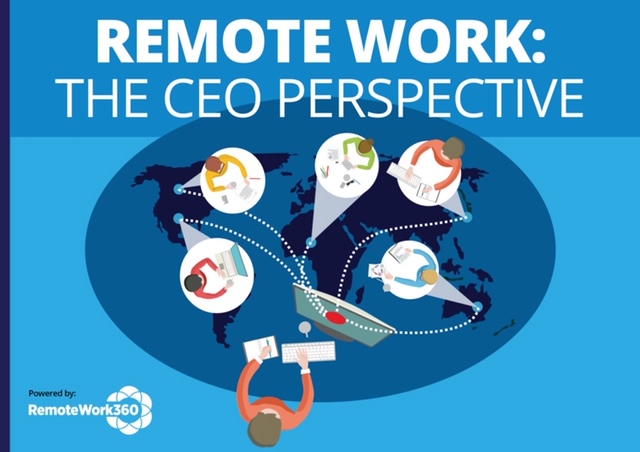Finance - Managing The Virtual Close
- Home
- Supplier Directory
- Attendance & Monitoring
- Collaboration & Communication
- Cloud Telephony & VOIP
- Collaboration & Secure File Sharing
- Communication Software
- Creative Tools
- Culture Building
- Interactive presentations/screen sharing
- Messaging Tools
- Online Training
- Productivity
- Project Management
- Shared workspaces
- Time Tracking
- Video Conferencing
- Virtual Water Cooler
- Web Developer tools
- Finance/Accounting
- HR/Talent Management
- IT
- Managing Remote Teams
- Productivity
- Project Management
- Remote Workplace Wellness
- Sales & Marketing
- eNewsletter
- Events / Education
- About Us
- News
Finance/Accounting
ByHeidi Williams
Remote working finance teams – 5 tips to manage the “virtual close”
The “virtual” month-end, quarter-end, or year-end close is still a relatively new concept for many, that few knew existed until Covid forced finance teams to work remotely. These business-critical time-pressured periods have the potential to be a world of pain for businesses which haven’t already adapted to automated workflows and digitised reporting – even for those that were fully digital, month-end close is still a challenging and fraught time, in which details need to be checked with colleagues – and working remotely can really hinder this.
PWC https://www.pwc.com/us/en/library/covid-19/navigating-virtual-close.html
If you’re preparing to close your accounts virtually – for month-end, quarter-end, year-end, or even for the week-end, read on to make sure you’re set up right to manage a virtual close.
1. Get your whole finance team set up right
Make sure your team has the right equipment, furniture and software to do their job effectively – nothing slows down productivity faster than a disgruntled or uncomfortable employee! This extends to ensuring the appropriate level of WiFi bandwidth is available and it’s as important for your senior executives as it is for your AP clerks. Your finance team are handling a lot of data and are in and out of different software tools and applications – they need to be able to work unimpeded by bad internet, or uncomfortable workspaces.
2. The right technologies and collaboration tools
Many finance teams – and it’s not just finance, this seems to be across the board for many businesses – simply moved their in-office work procedures to home-work procedures, with little more than an increase in video conferencing and, in some cases, some complex VPN set-ups. Working remotely is different to working in the office and your team will be far more effective working remotely if you acknowledge this and make some adaptations to ensure your team can continue to do their jobs effectively. For example, now that your team can’t lean over the desk or pop down the hall to check something with a colleague, they’re likely relying more on email – given this is the same across the board, all your staff are likely getting overwhelmed and bogged down by emails. Email communication isn’t the best solution for remote work – collaboration tools like slack work far better as they enable you to create channels and conversations, so that all responses are stored in one place.
3. Assess risks and ensure the right financial controls are in place
Financial controls are as important for a virtual close as they are for any financial close – if not more so. The pressures that financial closing brings can increase risk, as employees potentially create their own tech-work rounds, to solve any friction in your systems. For example, sending data over email or by post, or using unsecure networks or platforms because approved processes are slowing things down. They’re working against a deadline, they’re not in the office together – the VPN network you’ve so elaborately installed can become problematic if it’s slowing things down and that pushes employees to take matters into their own hands. It’s not enough to know that you’ve put in place the right financial controls, data protection systems, security controls etc – to be effective, you also need to know that they’re working effectively for your employees and that they’re using them not circumnavigating them.
4. Effective communication
This is true for any team doing any kind of remote work – and remote finance teams are no different, but the virtual-close means effective communication is even more important than ever, particularly given the time-pressures to complete – you need to ensure all employees working on the virtual close- and even the wider stakeholders in the business – are available at core times to answer any questions, check data, respond to queries etc, and that they have the appropriate tools to do so.
5. Effective monitoring
Without the ability to come together, it’s not just important to have the right tools to monitor and measure data and analytics, but also the right processes in place to oversee and co-ordinate them. Accounting technology like workday which tracks changes and caputres electronic information creating a “pemanent audit” to ensure compliance is really powerful.
Related Posts
An estimated 86.3% of San Francisco employees are working from home, the highest rate among 10 major ...
May 11, 2021
In the third instalment of her blog - you can catch the first, on maintaining creativity here and ...
January 22, 2021
The different “kinds” of remote: finding the right fit your business Covid-19 has turned our world ...
January 14, 2021
RemoteWork360
RemoteWork360.com is powered by Chief Executive Group, which exists to improve the performance of business leaders, build communities and strengthen society.
Latest Insights
COPYRIGHT ©2020 REMOTEWORK360. ALL RIGHTS RESERVED.



